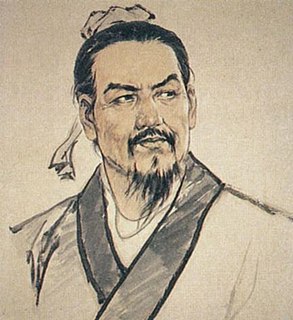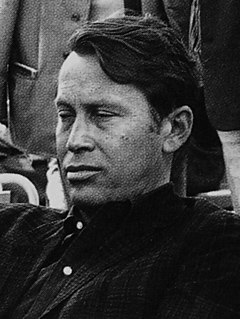A Quote by Fanny Jackson Coppin
A gentleman can always be told by the way he speaks to those that he thinks are his inferiors in some respect. His equals he does not wish to offend, his superiors he does not dare to offend, and of those whom he considers his inferiors he would be all the more considerate.
Related Quotes
After an inferior man has been taught a doctrine of superiority he will remain as inferior as he was before his lesson. He will merely assume himself to be superior, and attempt to employ his recently-learned tactics against his own kind, whom he will then consider his inferiors. With each inferior man enjoying what he considers his unique role, the entire bunch will be reduced to a pack of strutting, foppish, self-centered monkeys gamboling about on an island of ignorance. There they will play their games under the supervision of their keeper, who was and always will be a superior man.
The mockery made him feel an outsider; and feeling an outsider he behaved like one, which increased the prejudice against him and intensified the contempt and hostility aroused by his physical defects. Which in turn increased his sense of being alien and alone. A chronic fear of being slighted made him avoid his equals, made him stand, where his inferiors were concerned, self-consciously on his dignity.
We say, then, that Scripture clearly proves this much, that God by his eternal and immutable counsel determined once for all those whom it was his pleasure one day to admit to salvation, and those whom, on the other hand, it was his pleasure to doom to destruction. We maintain that this counsel, as regards the elect, is founded on his free mercy, without any respect to human worth, while those whom he dooms to destruction are excluded from access to life by a just and blameless, but at the same time incomprehensible judgment
Somebody might have come along that way who would have asked him his trouble, and might have cheered him by saying that his notions were further advanced than those of his grammarian. But nobody did come, because nobody does; and under the crushing recognition of his gigantic error Jude continued to wish himself out of the world.


































